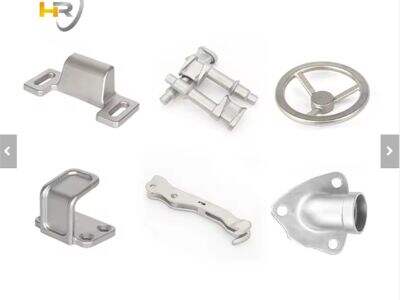Die-casting is a special way to make die-cast products. These products range from toys and car parts to parts for airplanes. Die casting has a major factor in how people like making things with it because it creates detailed and accurate parts. It means that when parts are made this way, the products that use these parts will function well and also look good.
What To Expect From Die Casting
There are numerous advantages to die casting. One of its great features is to make parts that are identical each time they are produced. This is mostly useful to make sure that when assembling on a product, all of them are fitting correctly into each other. This ensures that when all parts are identical, the end product is consistent and will perform in a desired manner.
The high speed of the die casting process is yet another great advantage. Die casting is a method where hot liquid metal is forced into a mold under great pressure. That means you can create parts fast and with very little waste in terms of material used. This means that die casting is an excellent process for producing multiple products at one time due to this speed and efficiency.
Strong and Light Parts
The die cast parts are extremely durable and can also have a longer life. That sturdiness matters for things that get a lot of use — like car components and tools. Die cast parts are strong but also lightweight. This is particularly useful for products such as cars, as having lightweight components can lend itself to speed and fuel efficiency. In addition, die cast parts are easy to work with and can be produced to very precise specifications, which is essential for a wide variety of product types.
Die Casting in Factories
Die casting is a highly adaptable process that can be used to manufacture a wide variety of parts, which is another reason why many factories prefer it. Smelting of different metals; die casting can pour metals like aluminum, zinc, and magnesium. It can also create parts in various sizes, which can be anything from small pieces used in electronics to large parts needed for airplanes. This versatility means that die casting can contribute to the production of a vast array of products across numerous industries, making it one of the most important methods of manufacturing.
Die Casting: How It Aids Production
Die casting has one of the greatest benefits for factories in that it enables them to make parts in an efficient manner in a very timely way. Due to the speedy nature of die casting, factories can produce thousands of parts in a matter of hours. This speed is crucial when it comes to meeting orders on time, which is indispensable in this high-speed world. So since die casting is highly efficient, it can also save factories money on materials and labor. That way, they can remain competitive and adapt their offerings to the needs of their customers.
Importance of Die Casting in Manufacturing Industries
Die casting is of extreme importance in many industrial settings as it offers a lot of advantages over other production methods. For instance, it enables companies to produce parts more quickly, which means they can run more items through their manufacturing processes in a shorter amount of time and fill orders more quickly. In aerospace and defense, for example, where precision is critical, die casting is used because the process guarantees a high degree of accuracy and consistency in the parts produced. Finally, die casting is also used across a wide spectrum of industries, as the process can be adapted for many different types of materials and shapes.
To sum up, die casting is a so much helpful and efficient technique that produces the best quality products in a short time. It enables factories to manufacture parts effectively so they can meet consumer demands. Huarui is a die casting specialist and we help our clients meet their targets for their manufacturing with quality parts at competitive prices

 EN
EN






































